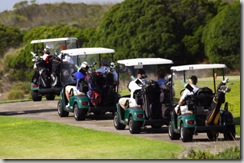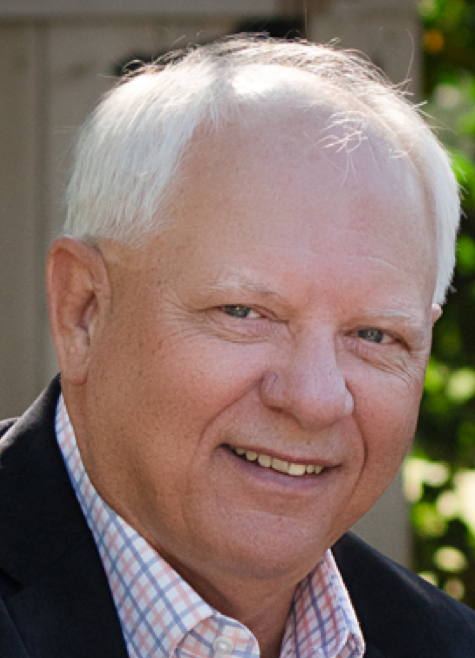 (Back in 2008 I posting a version of this five part series on Slow Play…Interesting how nothing much has changed to improve it. I have updated it and hope you find it as informational now as it was three years ago.)
(Back in 2008 I posting a version of this five part series on Slow Play…Interesting how nothing much has changed to improve it. I have updated it and hope you find it as informational now as it was three years ago.)
PART TWO
There are a few more things causing slow play which probably falls somewhere into one of the categories I have listed. Now let me tell you what is behind some of these causes and some of the solutions the golf industry could use to improve slow play.
Let’s first get out of the way the causes and solutions each golfer can help eliminate that will improve pace of play.
Make the Tee Time:
Make sure to showing up to your tee time on time. Make it a habit to be at the course at least thirty minutes before the tee time. If you are the host of the group you are playing with get there extra early and make sure they all check in. If you are a guest, the same courtesy needs to be given to the host of showing up well early of the tee times.
Most of the problems I see on golf courses where the pace of play is starting to back up is due to someone is late to their tee time. This causes the rest of the tee times to back up which hurts those who show up on time.
If making a tee time on time is not possible, consider canceling and letting someone else play.
Don’t Over Schedule
Clear your calendar so you do not have anything on your head when you play golf. Sometimes distractions of needing to meet another appointment after golf will cause you to loose focus on keeping pace, cause frustration and eventually keep you from enjoying the day. Plus, a busy schedule will probably cause problems with the meeting you scheduled after the golf.
Make sure you allow plenty of time for the round. Setting appointments to meet at exactly four and a half hours after your scheduled tee time is setting you up to be late…especially if you are playing on a weekend or pretty day.
If you cannot schedule 6 hours or more for a round of golf, then maybe you need to consider doing something else. There is no need getting on the golf course and then have to leave before you are finished, or have to hurry off because you are late. Impatience during slow play doesn’t help eliminate slow play.
I have seen many cases where over scheduled, stressed out, business owners or executives get out on the golf course and due to the pressure of the busy schedule make a bad golf game get really bad. So bad that the group spends more time trying to find the player’s golf ball than hitting it. Golfers who over schedules the day after making a tee time or commitment to play with a group is starting to be a large contributing factor to the slow play many golf courses are experiencing.
Acknowledge Playing Ability
If you are a beginner golfer or at a beginner level of skill, let the person you contact to set up your tee-time know this. They may want schedule your tee-time at a time more accommodative to your level of play. Plus, letting the pro-shop know you are a beginner will allow them to know how to pair you if you are not playing with a foursome.
Let everyone in the group you play with know your skill level before you tee off. If you don’t, everyone will assume you are at their level of play which if they had known differently they could suggest games or formats of play that could be used to help the beginner keep pace.
In a recent round of golf I played with a beginner who was playing their first round of golf. I suggested that we play a modified Shamble so the beginner could play their shot but play to where the best ball of the group landed. This took the pressure off the beginner since they were part of the team and let them play an ample amount of strokes. Plus, it gave the beginner a taste of what playing on the golf course was like so when they played again they could be more comfortable. Hopefully, over time the beginner would play their own shots to start establishing their handicap.
Here are some of the factors causing slow play the ‘green-fee paying’ golfer has little control over. Most of these deal with mismanaged golf courses.
Never Want To Be Negative
Too many times golf courses do not want to confront the golfers on the course who are causing problems. Appearing negative or portraying an image of a Un-friendly golf course is not what some golf courses feel will help bring in the golfers. Courses that do not manage the pace of play have a fear they will have to make a refund to those who they deem are playing slow. That is why starters are told they are not ‘in charge’. Most daily fee golf courses feel they must be a player friendly course at all costs. What these golf courses forget is they will not get the repeat business from the disgruntled golfers who have to tolerate the slow pace of play.
In today’s consumer driven economy, golfers will just not come back to a golf courses that does not manage the individuals causing the pace of play problem. The golfers who know how to keep pace, and are keeping pace, will sometimes leave a golf course if there is no effort made by the golf course to manage the situations that keeps them from enjoying their round of golf. Of course they demand a refund as well. Usually, that group of golfers will not return and will voice their concerns to their golf network which sometimes leads to posting a blog.
Positive Image
The solution is for golf courses to have specially trained golf Course Marshall staff who know how to deal with people and keep the players advised of their pace of play…good or bad.
Example of a Real Solution: A few months ago I was at a golf course where the Course Marshall greeted us on the second hole and advised us we were on pace of play. Each time he came by he told us where we were in pace of play. At the turn he greeted us again with a thank you and said he was looking forward to seeing us on the back nine…for which is meet us ever three holes to, FIRST, ask if he could assist us with anything and then ,SECOND, advise us of our pace of play. I will confess, we did get behind after the 12th hole and the Course Marshall kindly told us where we stood. We caught up to the pace naturally by the 16th hole and were met by the Course Marshall on the 17th tee where he gave us all Free Drink tickets for keeping pace.
NOW, that is just one solution to managing the pace of play..I am sure there are more.
I’ll be back in Part Three to talk about what golf facilities are doing to make slow play worse.




